By: Humane Pennsylvania Community Outreach Programs Manager, Alexandra Young
June is Adopt-a-Cat Month! Our Community Outreach Programs, Alexandra Young, loves cats so much, she wanted to tell you all about why cats make pawsome pets!
“Many people eagerly await the spring showers and flowers in April, as well as the pleasant warmth of summer temperatures in June. But for people who work and volunteer in animal welfare and cat rescue, spring marks the start of kitten season as free-roaming, outdoor cats start giving birth to litters of up to seven kittens.
 Forty-five years ago, this inevitable tidal wave of kittens was the impetus behind American Humane’s first Adopt-a-Cat Month campaign to urge the public to adopt cats and kittens from local animal shelters rather than buying them from breeders. The organization has existed for over 100 years, creating public service campaigns and performing animal rescue during wars, 9/11, and weather disasters.
Forty-five years ago, this inevitable tidal wave of kittens was the impetus behind American Humane’s first Adopt-a-Cat Month campaign to urge the public to adopt cats and kittens from local animal shelters rather than buying them from breeders. The organization has existed for over 100 years, creating public service campaigns and performing animal rescue during wars, 9/11, and weather disasters.
I have been a pet owner since childhood, caring for a variety of creatures, including lizards, fish, birds, rodents, cats, and dogs. Each species presents certain challenges, but if you’re looking for a warm-blooded, soft, fuzzy friend, it’s wise to consider adopting a shelter cat or kitten.
Cats make excellent pets for many of the same reasons dogs do: unconditional love, affirmation of the human-animal bond, stress reduction, and providing you with a sense of purpose. And cats have some outstanding characteristics that may make them more suitable companions than dogs, which are higher-maintenance pets.
Independence: For busy working folks, especially ones who travel or have an unpredictable work schedule, the self-sufficient nature of cats is a big bonus. They instinctively use litter boxes as tiny kittens and, if basic maintenance guidelines are followed (and there are no health issues), they’ll reliably use them when needed. It’s simple!
With the advent of motion-activated gadgets, it’s even easier to leave your cats for a few days, as long as your pet is familiar with a routine using automatic food dispensers (set to timed meals) and litter boxes.
They should already have plenty of high shelves and cat trees near windows on which to perch and view their kingdom, which will keep them occupied and content. Battery-operated interactive toys and food 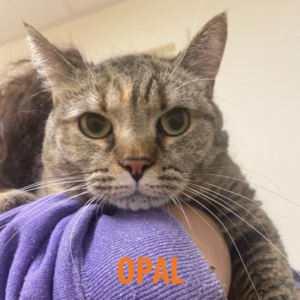 puzzles abound, so a friend could come every other day and reset such items for their fun time.
puzzles abound, so a friend could come every other day and reset such items for their fun time.
Even cats that are very bonded to their people do not typically suffer from separation anxiety, so there is very low risk for property damage while you’re away, regardless of the time frame.
Intelligence: Many people know that cats inherently do not try very hard to please their owners, and their respect must be earned. But people may not realize that cats can also be taught as many tricks as a dog can!
Cats have the mental capacity and physical ability (maybe even more than dogs!) to learn the same kinds of antics and obstacle course athletics, but they respond well only to positive reinforcement and force-free training methods, such as clicker training[1].
This method is also used regularly — and successfully — on animals in zoos and aquariums to desensitize them to being handled in certain ways so they can be examined and undergo important medical procedures. If they can train a grizzly bear to safely display his teeth, you can certainly teach your kitty to give a high-five, fetch, or roll over on command.
Budget-friendly: Because of their small size, any anesthesia or medicine a cat needs will cost less than it would for a medium- or larger-size dog. Of course, cats should still be sterilized and get the same basic veterinary care annually (or more often as they get older), but they are generally more affordable to keep.
Opportunity: Lastly, but far from the least important factor, is that when you adopt a cat, you save 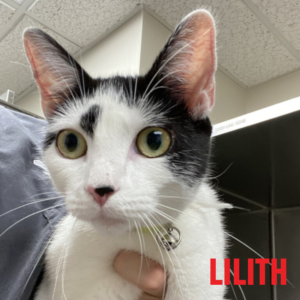 more than just that kitty! When you adopt a shelter cat, you save that cat’s life as well as open up a space at the facility for another needy purrball. Although not all outside cats are suitable for adoption[2], if you rescue a neighborhood cat that clearly enjoys being a family house cat, you remove that cat as a breeder from the area and provide it with a healthy, safe home.
more than just that kitty! When you adopt a shelter cat, you save that cat’s life as well as open up a space at the facility for another needy purrball. Although not all outside cats are suitable for adoption[2], if you rescue a neighborhood cat that clearly enjoys being a family house cat, you remove that cat as a breeder from the area and provide it with a healthy, safe home.
Even in areas with robust programs that humanely manage cat colonies, there are still lost pets, kittens that are born outside, and older cats that are surrendered by owners who can no longer care for them that end up in shelters and are looking for their next family.
Be a part of the solution to pet overpopulation in our country and don’t shop, but adopt your next pet. Stop in either Humane Pennsylvania’s Berks or Lancaster County animal shelters to find your next faithful, furry friend!”
—
[1] https://www.clickertraining.com/cat-training
2 http://blog.humanepa.org/?m=202110
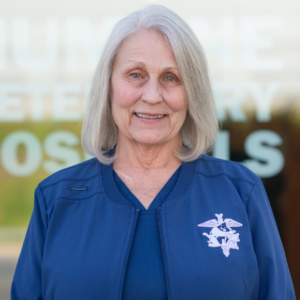 After 16 incredible years with Humane Pennsylvania, we are celebrating the retirement of Gloria Hill, Humane Veterinary Hospitals Receptionist. As she prepares for this next chapter, we sat down to reflect on her time with HPA, her favorite memories, and her plans for the future.
After 16 incredible years with Humane Pennsylvania, we are celebrating the retirement of Gloria Hill, Humane Veterinary Hospitals Receptionist. As she prepares for this next chapter, we sat down to reflect on her time with HPA, her favorite memories, and her plans for the future.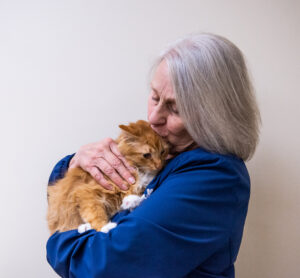 animals and their caretakers.
animals and their caretakers. What are your plans for retirement? Do you have any fun adventures or hobbies that you are looking forward to?
What are your plans for retirement? Do you have any fun adventures or hobbies that you are looking forward to?



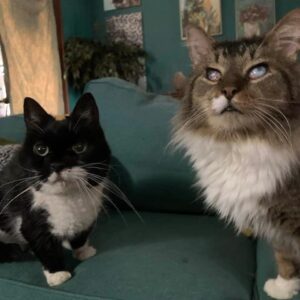 infection among other things. After her vet check, it was recommended to adopt her out as hospice care. I decided to adopt her knowing I might not have her for long. Sadly, she passed away four months later, but I made sure she spent the last few months of her life happy and loved.
infection among other things. After her vet check, it was recommended to adopt her out as hospice care. I decided to adopt her knowing I might not have her for long. Sadly, she passed away four months later, but I made sure she spent the last few months of her life happy and loved. One September morning a cat was abandoned at the shelter. We scanned the cat and found out she was adopted from our organization 15 years ago. She was frail and extremely underweight. Her name was Rapunzel but I called her Princess Thumbs because she was a polydactyl cat. After getting her blood work done it turned out that she had hyperthyroidism and needed to be on medication and a special diet. After doing some research about the disease, I adopted her. I was not sure of the outcome since she was so thin and I had no idea how long she was in this condition but I was determined to try. Unfortunately, her illness was too far gone, but she did give me two wonderful weeks. She was truly an amazing cat. I miss you, my crunchy princess.
One September morning a cat was abandoned at the shelter. We scanned the cat and found out she was adopted from our organization 15 years ago. She was frail and extremely underweight. Her name was Rapunzel but I called her Princess Thumbs because she was a polydactyl cat. After getting her blood work done it turned out that she had hyperthyroidism and needed to be on medication and a special diet. After doing some research about the disease, I adopted her. I was not sure of the outcome since she was so thin and I had no idea how long she was in this condition but I was determined to try. Unfortunately, her illness was too far gone, but she did give me two wonderful weeks. She was truly an amazing cat. I miss you, my crunchy princess. surrendered for meowing too much. Her name was Marigold. She was super sweet and did indeed “talk” a lot, which made me love her even more. After getting blood work done for her, results showed that she had hyperthyroidism. I was a little nervous because I was worried I would lose her too. I still decided to adopt her and give her a chance. Well, she is now a happy cat that “talks too much” if her bowl is empty. She will hop after you like a rabbit making sure you hear her loud and clear.
surrendered for meowing too much. Her name was Marigold. She was super sweet and did indeed “talk” a lot, which made me love her even more. After getting blood work done for her, results showed that she had hyperthyroidism. I was a little nervous because I was worried I would lose her too. I still decided to adopt her and give her a chance. Well, she is now a happy cat that “talks too much” if her bowl is empty. She will hop after you like a rabbit making sure you hear her loud and clear. During our annual 12 Days of Adoptions event during the holidays, the majority of the cats at the shelter were finding homes. There was one cat I was hoping would find her furever home since she had been overlooked for 8 months. Her name was Karma, an adorable Orange and white cat with the cutest “RBF” squishy face. Karma had a few medical issues. She was FIV+, had an old ankle injury that made her limp, and experienced bladder issues which would require a special diet and medication for life. When Christmas Eve and the last day of the adoption special arrived, I told Karma “It’s time to go home”. It’s been two months since she came home and I’m so happy I made that decision. Her health has since improved and she couldn’t be happier in her new home.
During our annual 12 Days of Adoptions event during the holidays, the majority of the cats at the shelter were finding homes. There was one cat I was hoping would find her furever home since she had been overlooked for 8 months. Her name was Karma, an adorable Orange and white cat with the cutest “RBF” squishy face. Karma had a few medical issues. She was FIV+, had an old ankle injury that made her limp, and experienced bladder issues which would require a special diet and medication for life. When Christmas Eve and the last day of the adoption special arrived, I told Karma “It’s time to go home”. It’s been two months since she came home and I’m so happy I made that decision. Her health has since improved and she couldn’t be happier in her new home. Humane PA is very excited to share details about our next steps to deliver the most impactful services to animals and people in our community! The needs of animals and the community have rapidly changed a great deal in recent years. In the last 20 years, the number of animals entering Humane PA shelters has declined by over 85%. Shelter euthanasia has declined by 99%. These numbers reflect national statistics.
Humane PA is very excited to share details about our next steps to deliver the most impactful services to animals and people in our community! The needs of animals and the community have rapidly changed a great deal in recent years. In the last 20 years, the number of animals entering Humane PA shelters has declined by over 85%. Shelter euthanasia has declined by 99%. These numbers reflect national statistics.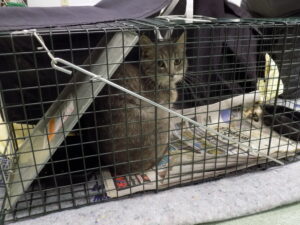 stemming from house pets, the limited and scattershot approaches for feral and free-roaming cats have not been as successful. That’s because sterilizing a few cats from this colony and a few from that colony leaves plenty of cats behind to breed. Humane PA is now taking a different approach, based on data and models with proven success. Since February, under the leadership of free-roaming cat whisperer, Alex Young, our Healthy Pets Initiative staff have been working directly with caretakers of colonies ranging from a half dozen to a hundred cats. One colony at a time, we have been sterilizing 100% (or as close as possible) of partner-managed colonies. By sterilizing every single cat in an extremely short time frame, we ensure there are no new litters, avoid boom and death cycles, and make it possible to effectively intervene when one or two new cats move into a colony.
stemming from house pets, the limited and scattershot approaches for feral and free-roaming cats have not been as successful. That’s because sterilizing a few cats from this colony and a few from that colony leaves plenty of cats behind to breed. Humane PA is now taking a different approach, based on data and models with proven success. Since February, under the leadership of free-roaming cat whisperer, Alex Young, our Healthy Pets Initiative staff have been working directly with caretakers of colonies ranging from a half dozen to a hundred cats. One colony at a time, we have been sterilizing 100% (or as close as possible) of partner-managed colonies. By sterilizing every single cat in an extremely short time frame, we ensure there are no new litters, avoid boom and death cycles, and make it possible to effectively intervene when one or two new cats move into a colony.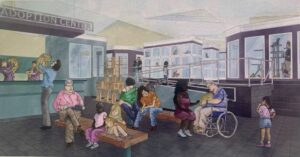
 We heard this loud and clear in a recent survey of our supporters. Over 90% of respondents said they thought there needed to be more affordable options. Over 60% of respondents told us that they had faced barriers of some type that prevented them from accessing, including cost or the health or behavioral challenges of their pets. Humane PA knows that some of these pets might end up in shelters if owners can no longer access routine boarding services. Humane PA also knows that there are few or no boarding options regularly available for emergency response, domestic violence victims, those facing health crises, and police dogs.
We heard this loud and clear in a recent survey of our supporters. Over 90% of respondents said they thought there needed to be more affordable options. Over 60% of respondents told us that they had faced barriers of some type that prevented them from accessing, including cost or the health or behavioral challenges of their pets. Humane PA knows that some of these pets might end up in shelters if owners can no longer access routine boarding services. Humane PA also knows that there are few or no boarding options regularly available for emergency response, domestic violence victims, those facing health crises, and police dogs. services may feel very different or even alien to what is perceived as “animal sheltering”. Although we had the kernel of an idea over a decade ago, since then several organizations around the nation have pioneered boarding programs to address the new needs of their communities to great success. These services are needed and they make a difference, whether it’s the pet of an adopter or a police dog of an officer needing to travel, the cats of someone displaced by fire, the dog of someone who is admitted to the hospital with a heart attack, or the pets of those trying to flee domestic violence
services may feel very different or even alien to what is perceived as “animal sheltering”. Although we had the kernel of an idea over a decade ago, since then several organizations around the nation have pioneered boarding programs to address the new needs of their communities to great success. These services are needed and they make a difference, whether it’s the pet of an adopter or a police dog of an officer needing to travel, the cats of someone displaced by fire, the dog of someone who is admitted to the hospital with a heart attack, or the pets of those trying to flee domestic violence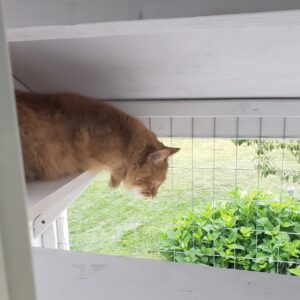 Many refer to me as a “crazy cat lady,” but I don’t mind. I have spent more than 20 years advocating for the rights of and implementing humane management of free-roaming/community/feral cats in Berks County. I took care of 29 inside cats for four years and have volunteered in animal rescue for my entire life.
Many refer to me as a “crazy cat lady,” but I don’t mind. I have spent more than 20 years advocating for the rights of and implementing humane management of free-roaming/community/feral cats in Berks County. I took care of 29 inside cats for four years and have volunteered in animal rescue for my entire life.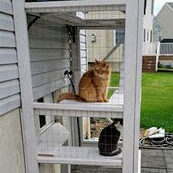
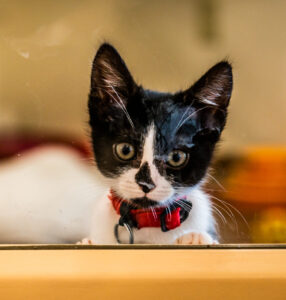 Although your cat still exhibits some wildness about them, rest assured that they are dependent on you to provide healthy food, adequate shelter, proper stimulation, and an annual veterinary exam to keep them in tip-top shape.
Although your cat still exhibits some wildness about them, rest assured that they are dependent on you to provide healthy food, adequate shelter, proper stimulation, and an annual veterinary exam to keep them in tip-top shape.
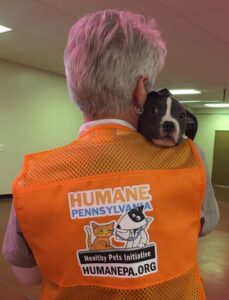
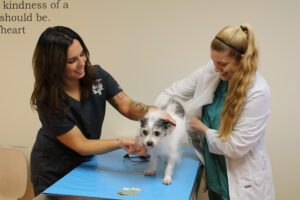
 There are many ways to celebrate this lovable tabby, especially in a world full of cat (and animal!) lovers. For me, an owner of three orange tabby cats, this fun holiday is very relatable. While my orange kitties don’t necessarily have a strong love of lasagna or coffee, they have wonderful, silly personalities and love to lay in the sun, much like Garfield.
There are many ways to celebrate this lovable tabby, especially in a world full of cat (and animal!) lovers. For me, an owner of three orange tabby cats, this fun holiday is very relatable. While my orange kitties don’t necessarily have a strong love of lasagna or coffee, they have wonderful, silly personalities and love to lay in the sun, much like Garfield. extremely outgoing and greets everyone as soon as they walk in the door. He will also “talk” to you and chirp the answers to any questions you ask him. He loves to be petted and will cuddle right up any lap or bed pillow (at night) that’s available.
extremely outgoing and greets everyone as soon as they walk in the door. He will also “talk” to you and chirp the answers to any questions you ask him. He loves to be petted and will cuddle right up any lap or bed pillow (at night) that’s available. April 2019. At this point, I knew my love for orange tabby cats was strong. So as soon as I saw him in his cage, rolling around and reaching for me on the other side of the glass, it was game over. He fits in with his brothers very well, and he has such a charming personality. He purrs loudly, loves hard, and craves human affection.
April 2019. At this point, I knew my love for orange tabby cats was strong. So as soon as I saw him in his cage, rolling around and reaching for me on the other side of the glass, it was game over. He fits in with his brothers very well, and he has such a charming personality. He purrs loudly, loves hard, and craves human affection. Forty-five years ago, this inevitable tidal wave of kittens was the impetus behind American Humane’s first Adopt-a-Cat Month campaign to urge the public to adopt cats and kittens from local animal shelters rather than buying them from breeders. The organization has existed for over 100 years, creating public service campaigns and performing animal rescue during wars, 9/11, and weather disasters.
Forty-five years ago, this inevitable tidal wave of kittens was the impetus behind American Humane’s first Adopt-a-Cat Month campaign to urge the public to adopt cats and kittens from local animal shelters rather than buying them from breeders. The organization has existed for over 100 years, creating public service campaigns and performing animal rescue during wars, 9/11, and weather disasters. puzzles abound, so a friend could come every other day and reset such items for their fun time.
puzzles abound, so a friend could come every other day and reset such items for their fun time. more than just that kitty! When you adopt a shelter cat, you save that cat’s life as well as open up a space at the facility for another needy purrball. Although not all outside cats are suitable for adoption[2], if you rescue a neighborhood cat that clearly enjoys being a family house cat, you remove that cat as a breeder from the area and provide it with a healthy, safe home.
more than just that kitty! When you adopt a shelter cat, you save that cat’s life as well as open up a space at the facility for another needy purrball. Although not all outside cats are suitable for adoption[2], if you rescue a neighborhood cat that clearly enjoys being a family house cat, you remove that cat as a breeder from the area and provide it with a healthy, safe home.